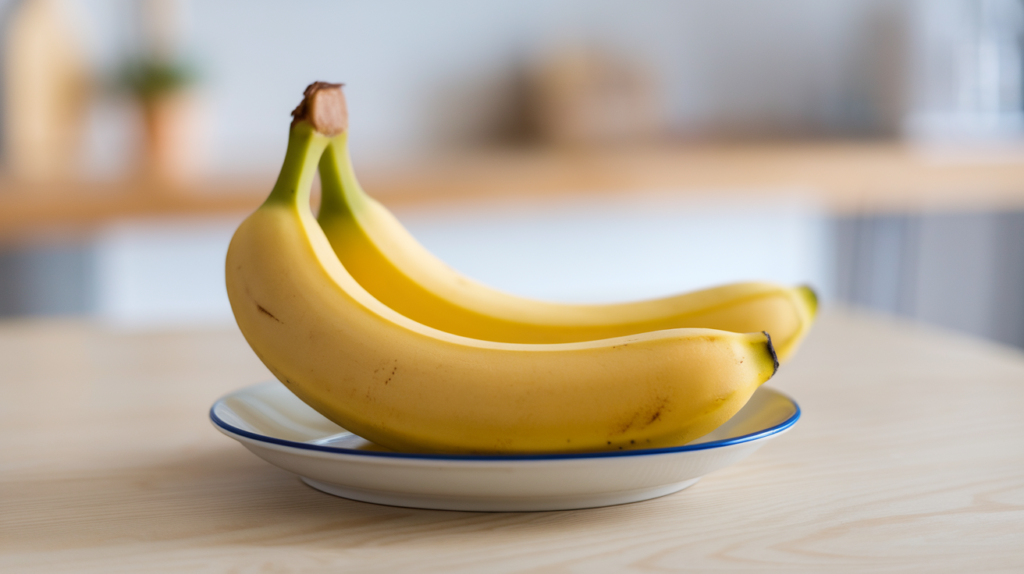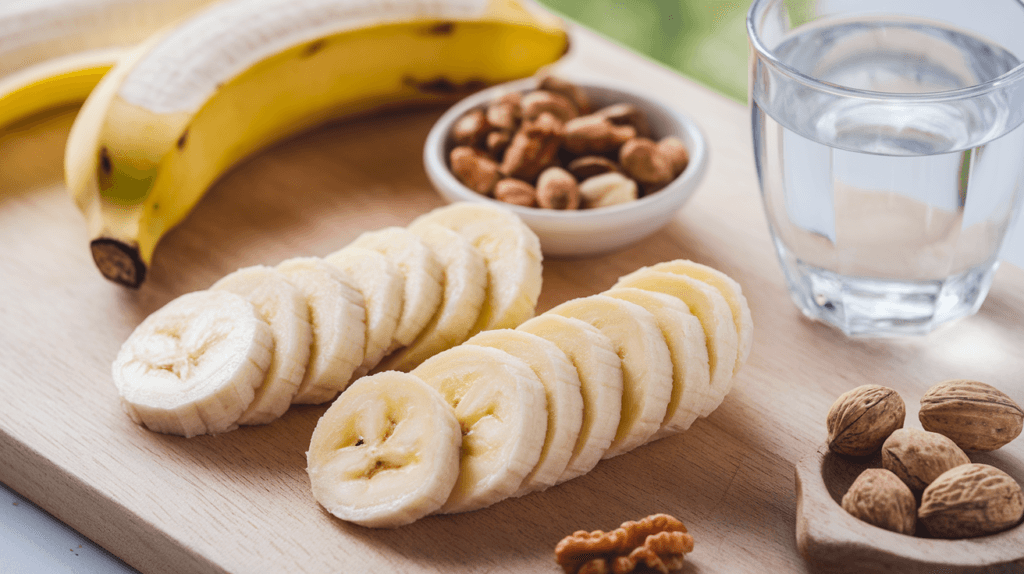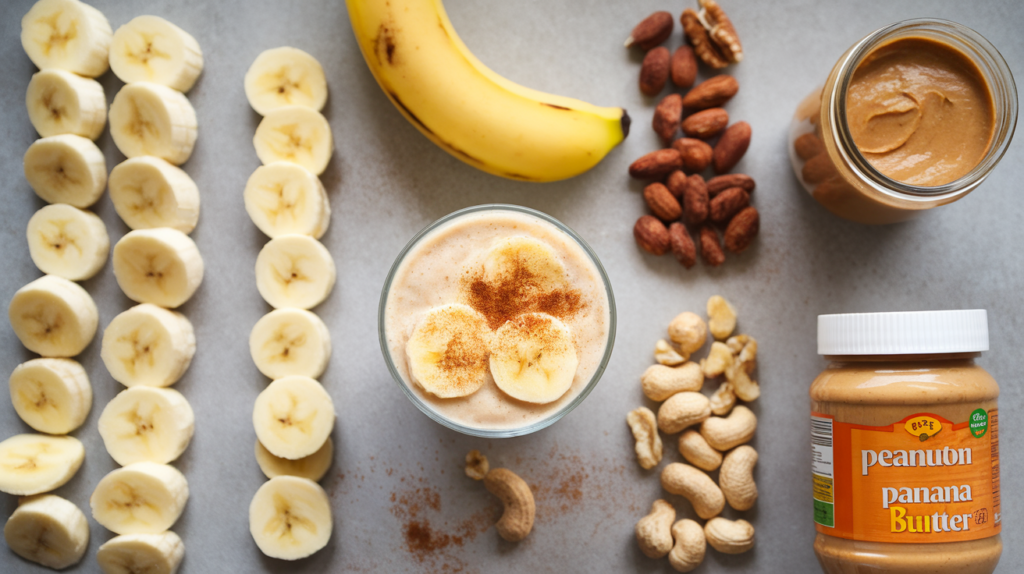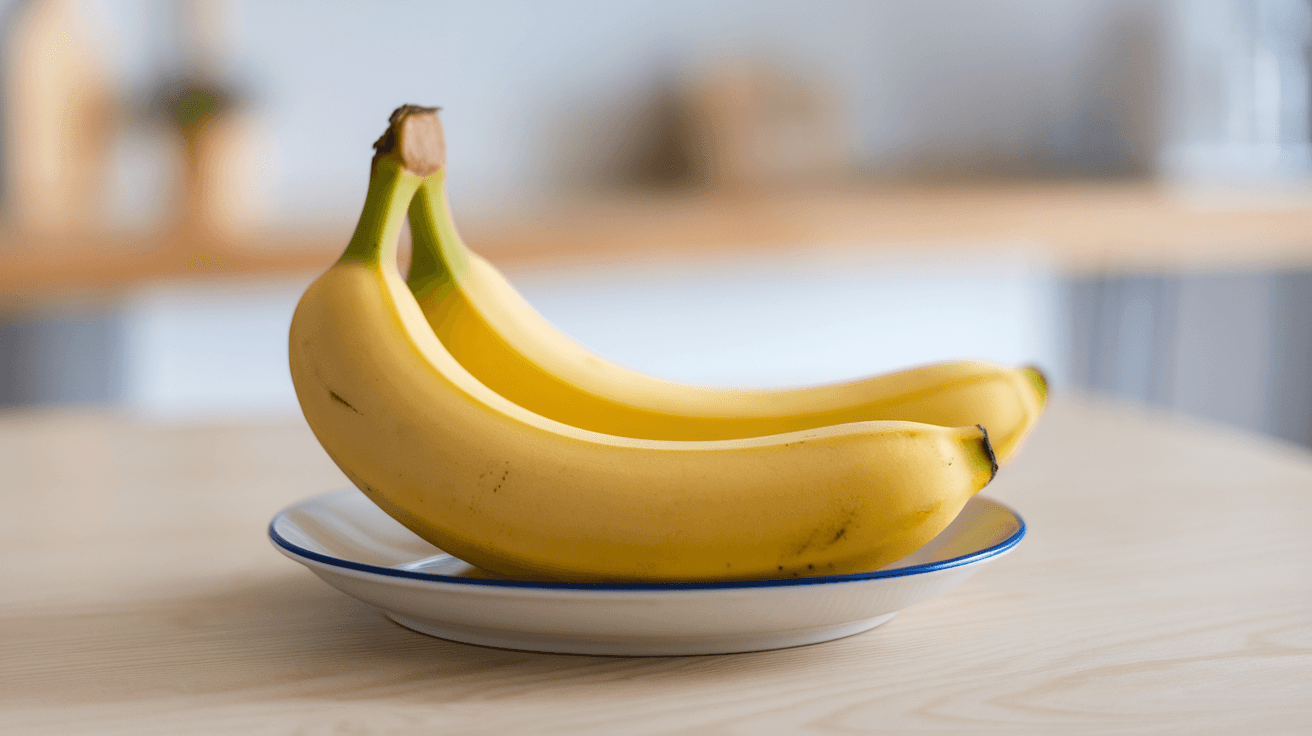Introduction
Bananas are one of the world’s most popular fruits, loved for their convenience, delicious taste, and nutritional benefits. Whether you’re a fitness enthusiast looking to fuel your workouts, a cook crafting recipes, or someone curious about daily nutrition, bananas play an essential role in your diet. But how much do 2 bananas make? From their weight and caloric value to their cost and culinary applications, this article dives deep into everything you need to know about the humble banana.
In this comprehensive guide, we’ll explore the nutritional facts, weight, pricing, health benefits, and uses of 2 bananas. Additionally, we’ll address common questions about their environmental impact and answer FAQs to provide you with a complete understanding of their value. Let’s get started!

Nutritional Value of 2 Bananas
Bananas are a nutritional powerhouse, offering a wealth of essential nutrients, vitamins, and minerals that contribute to overall health. Understanding the nutritional content of 2 bananas can help you make informed dietary choices and appreciate their role in a balanced diet.
Overview of Banana Nutrition
Bananas are naturally low in fat and cholesterol while being rich in carbohydrates, particularly natural sugars like glucose, fructose, and sucrose. They are an excellent source of dietary fiber, making them an ideal choice for promoting digestive health and maintaining energy levels.
Here’s a breakdown of the nutritional composition of an average-sized banana (about 120 grams):
- Calories: ~105
- Carbohydrates: ~27 grams
- Fiber: ~3 grams
- Protein: ~1 gram
- Fat: ~0.3 grams
When consuming 2 bananas, these values double, providing a quick and nutritious energy boost without adding excessive calories.
Calories in 2 Bananas
Two average-sized bananas contain approximately 210 calories. These calories primarily come from carbohydrates, making bananas an excellent source of quick energy for activities like workouts or as a midday snack. Compared to other snack options, bananas provide a nutrient-dense alternative with minimal fat and no added sugars.
Vitamins and Minerals Content

Bananas are a treasure trove of vitamins and minerals essential for maintaining good health. Two bananas typically offer:
- Vitamin B6: Supports brain health and red blood cell production.
- Vitamin C: Enhances immune function and skin health.
- Potassium: Promotes healthy heart and muscle function (over 800 mg in 2 bananas).
- Magnesium: Supports bone health and energy production.
Additionally, bananas are a source of antioxidants such as dopamine and catechins, which help combat oxidative stress and reduce the risk of chronic diseases.
With their impressive nutritional profile, 2 bananas can easily be incorporated into a variety of diets, from weight loss to muscle-building regimens.
Weight and Size of 2 Bananas
The weight and size of bananas can vary significantly depending on their type, ripeness, and cultivation region. Understanding the average weight of 2 bananas can provide insights into their nutritional value and practical uses in recipes or portion control.
Average Weight of 2 Bananas
On average, a single medium-sized banana weighs around 120 grams, including the peel. However, once you remove the peel, the edible portion typically weighs about 80 grams. Consequently, when you calculate the combined weight of 2 medium bananas, they weigh approximately 240 grams with their peels intact or about 160 grams of edible fruit. Furthermore, it’s important to note that the exact weight may vary slightly depending on the size and ripeness of the bananas. Therefore, if precision is essential—for example, in baking recipes or calorie tracking—you may want to weigh them for accuracy. Nevertheless, this approximation works well for most everyday uses.
It’s important to note that bananas can be categorized into small, medium, and large sizes, each contributing to a slight variation in weight. Here’s a general guideline:
- Small banana: ~100 grams (with peel), ~70 grams (edible)
- Medium banana: ~120 grams (with peel), ~80 grams (edible)
- Large banana: ~140 grams (with peel), ~100 grams (edible)
For 2 bananas, simply double these values to estimate their total weight based on size.
How Size Affects Weight
The size of bananas not only affects their weight but also their nutritional content. Larger bananas contain slightly more calories, carbohydrates, and other nutrients compared to smaller ones. Here’s a quick comparison for 2 bananas:
| Size | Weight (With Peel) | Calories | Carbs |
|---|---|---|---|
| Small (2) | ~200 grams | 180 | 50 grams |
| Medium (2) | ~240 grams | 210 | 54 grams |
| Large (2) | ~280 grams | 240 | 60 grams |
These differences highlight the importance of size when calculating nutritional values or portion sizes for recipes and diet plans.
Practical Applications
The weight of 2 bananas makes them ideal for various practical uses:
- Meal planning: Knowing the weight helps in calorie and macro tracking.
- Recipes: Baking or cooking often requires precise measurements, and understanding banana weight ensures consistent results.
- Portion control: Weight measurements aid in managing portions for specific dietary needs.
By understanding the weight and size of 2 bananas, you can better utilize them in both your nutritional goals and daily meals.
Cost and Pricing of 2 Bananas
The price of bananas can vary widely based on factors such as location, season, and availability. Exploring the cost of 2 bananas involves looking at their global average price, factors that influence pricing, and a comparison of the cost of purchasing one versus two bananas.
Global Average Cost of Bananas
Bananas are one of the most affordable fruits worldwide due to their high yield and efficient distribution. On average, bananas cost between $0.50 and $1.00 per pound (about 450 grams) in many countries. Given that an average medium banana weighs approximately 120 grams with the peel, you can estimate the price of 2 bananas as:
- 2 bananas (medium): ~240 grams (~0.53 pounds)
- Price: $0.25 to $0.53, depending on the cost per pound
In countries where bananas are grown locally, such as tropical and subtropical regions, prices are often lower. Conversely, in areas where bananas are imported, transportation and tariffs can increase costs.
Factors Influencing Banana Prices
The cost of bananas is affected by several factors:
- Seasonality: While bananas are available year-round, prices may fluctuate slightly based on harvest cycles.
- Transportation Costs: Imported bananas often incur shipping and handling fees, which are passed on to consumers.
- Market Demand: High demand during certain periods (e.g., holidays) can increase prices.
- Organic vs. Conventional: Organic bananas are typically more expensive due to higher production costs.
- Climate Impact: Adverse weather in banana-growing regions can disrupt supply chains, affecting prices globally.
Understanding these factors helps consumers make informed decisions about when and where to buy bananas for the best value.
Cost Comparison: 1 vs. 2 Bananas
Purchasing bananas in larger quantities often offers better value. Many grocery stores and markets sell bananas by weight, which means the cost of a single banana depends on its size and weight. Here’s a simple comparison:
| Quantity | Weight (Approx.) | Cost Range |
|---|---|---|
| 1 Banana (Medium) | ~120 grams | $0.12 to $0.26 |
| 2 Bananas (Medium) | ~240 grams | $0.25 to $0.53 |
| 5 Bananas (Medium) | ~600 grams | $0.60 to $1.30 |
As seen in the table, buying more bananas often reduces the cost per unit. This makes bananas an economical choice for families or individuals who consume them regularly.
Tips for Saving Money on Bananas
Here are some strategies to get the best value when buying bananas:
- Buy in bulk if you consume bananas frequently.
- Shop at local farmers’ markets for potentially lower prices on fresh produce.
- Look for discounts on overripe bananas, which are perfect for baking or smoothies.
- Compare organic and conventional options to decide what fits your budget and preferences.
With their affordability and nutritional value, 2 bananas offer a cost-effective way to enjoy a healthy snack or enhance your meals.
Health Benefits of 2 Bananas
Eating 2 bananas can offer a variety of health benefits, ranging from providing a quick energy boost to supporting heart health. Bananas are a rich source of nutrients that make them a staple in many diets around the world. Let’s explore the key health advantages of consuming 2 bananas.
Energy Boost and Workout Aid
Bananas are often called “nature’s energy bar” because they provide an instant and sustained energy boost. Two bananas contain approximately 54 grams of carbohydrates, primarily natural sugars such as glucose, fructose, and sucrose, which are quickly absorbed by the body.
Here’s why bananas are ideal for physical activities:
- Pre-workout fuel: Eating 2 bananas about 30 minutes before exercise provides a quick source of energy.
- Post-workout recovery: The potassium in bananas helps replenish electrolytes lost during intense workouts, reducing muscle cramps.
In fact, many athletes rely on bananas as a natural alternative to sports drinks or synthetic energy bars.
Digestive Health Advantages
Two bananas offer around 6 grams of dietary fiber, which is approximately 24% of the recommended daily intake for an adult. Fiber plays a crucial role in maintaining a healthy digestive system by promoting regular bowel movements and preventing constipation.
Bananas are particularly beneficial for gut health due to their content of:
- Resistant starch: Found in slightly unripe bananas, this type of starch acts as a prebiotic, nourishing healthy gut bacteria.
- Pectin: A soluble fiber that helps regulate digestion and may reduce symptoms of diarrhea.
Including 2 bananas in your diet can contribute to a well-functioning digestive system and overall gut health.
Supporting Heart Health
The potassium content in 2 bananas is impressive, with a combined total of over 800 milligrams. Potassium is essential for maintaining proper heart function and regulating blood pressure by counteracting the effects of sodium.
Here are the cardiovascular benefits of eating 2 bananas daily:
- Lowering blood pressure: Potassium helps relax blood vessel walls, reducing hypertension.
- Reducing the risk of heart disease: A diet rich in potassium and fiber is linked to improved heart health.
- Boosting circulation: The nutrients in bananas support healthy blood flow, ensuring oxygen and nutrients reach all parts of the body.
By incorporating 2 bananas into your daily routine, you can take a proactive step toward better cardiovascular health.
Other Notable Health Benefits
Besides energy, digestion, and heart health, 2 bananas also offer other noteworthy benefits:
- Improved mood: Bananas contain tryptophan, an amino acid that helps the body produce serotonin, often called the “feel-good hormone.”
- Strengthened immunity: The vitamin C in bananas supports immune system function.
- Bone health: Magnesium and potassium work together to strengthen bones and prevent mineral loss.
- Weight management: Bananas are naturally filling, helping to curb cravings and prevent overeating.
With their wide range of health benefits, eating 2 bananas is a simple and effective way to improve your overall well-being.
Uses of 2 Bananas

Bananas are incredibly versatile and can be used in various ways beyond being eaten as a standalone snack. Two bananas can enhance numerous recipes, beverages, and even household hacks. Let’s explore some creative uses for 2 bananas.
In Cooking and Baking
Two bananas are a common ingredient in baking recipes, offering natural sweetness, moisture, and a creamy texture. Popular banana-based dishes include:
- Banana bread: Most recipes require 2-3 ripe bananas as the main ingredient.
- Pancakes: Mashed bananas can replace eggs or sugar in pancake batter.
- Muffins and cakes: Bananas add flavor and softness to baked goods.
Bananas also work well in savory dishes, such as plantain-inspired recipes or as a topping for oatmeal and yogurt bowls.
Smoothies and Beverages
Adding 2 bananas to a smoothie provides creaminess, sweetness, and an energy boost. Combine them with ingredients like milk, yogurt, spinach, or protein powder for a nutritious drink. Here are some ideas:
- Banana peanut butter smoothie: Blend bananas, peanut butter, milk, and ice for a protein-packed treat.
- Green smoothie: Mix bananas with kale, spinach, and almond milk for a refreshing detox beverage.
- Dessert shakes: Pair bananas with chocolate syrup and vanilla ice cream for a decadent drink.
Quick Snack Ideas
For a fast and healthy snack, use 2 bananas to create:
- Banana slices with nut butter: Spread almond or peanut butter on banana slices for a nutrient-rich snack.
- Frozen banana pops: Dip bananas in melted chocolate, freeze them, and enjoy a guilt-free dessert.
- Trail mix addition: Combine banana chips with nuts and dried fruits for a portable snack.
With their versatility, 2 bananas can be incorporated into countless recipes and snacks to suit any taste or occasion.
Environmental Impact of Bananas
Bananas are a popular fruit worldwide, but their cultivation and transportation can have environmental consequences. Let’s examine the impact of growing and consuming bananas.
Banana Cultivation and Sustainability
Bananas require tropical climates to grow, often leading to large-scale farming practices that can affect biodiversity and soil quality. Sustainable practices, such as organic farming and agroforestry, can mitigate these effects.
Impact of Demand on the Environment
The global demand for bananas involves transportation over long distances, contributing to greenhouse gas emissions. Opting for locally sourced or fair-trade bananas can help reduce this impact.
Frequently Asked Questions
How many grams is 2 bananas?
Two medium-sized bananas typically weigh about 240 grams (with peel) or 160 grams (edible portion).
Are 2 bananas too many to eat at once?
Not at all! Eating 2 bananas provides a moderate calorie intake of ~210 calories and a rich dose of potassium, fiber, and vitamins, making them a healthy choice.
How many carbs are in 2 bananas?
Two bananas contain approximately 54 grams of carbohydrates, making them an excellent energy source.
What is the sugar content of 2 bananas?
Two bananas have about 28 grams of natural sugars, which provide energy without added sweeteners.
Can I freeze 2 bananas for later use?
Yes! Peel and slice the bananas before freezing them in an airtight container for smoothies, baking, or snacking.
How much potassium is in 2 bananas?
Two bananas provide over 800 mg of potassium, which supports heart health and muscle function.
Conclusion
Bananas are a versatile and nutritious fruit that offer a wealth of benefits. From their affordability and energy-boosting properties to their culinary applications and health advantages, 2 bananas can significantly enhance your diet and lifestyle. Whether eaten fresh, blended into a smoothie, or baked into a dessert, bananas are a convenient and delicious way to enjoy a healthier you. So next time you grab 2 bananas, remember the incredible value they bring to your table!

